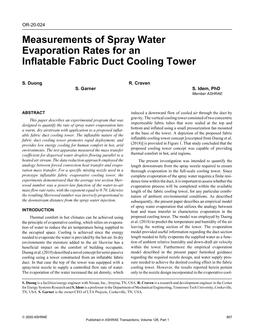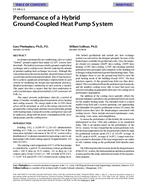One of the functions of the exterior walls of buildings is to separate outdoor elements from the inside environment. Building envelopes are not normally completely air tight and they permitsome flow of air into and out of them through joints and cracks in the wall fabric. This leakageof air contributes to heating and cooling loads and must be taken into account in any energyanalysis of buildings and design of HVAC systems.
Infiltration rates depend primarily on the air leakage characteristics of exterior walls andto a lesser extent on those of interior separations such as floor construction, interior partitionsand various service shafts. A reliable prediction of the infiltration rates of multistoreybuildings is hampered at present, by the scarcity of information on the actual air leakagecharacteristics of exterior walls.
The National Research Council of Canada has taken measurements of the air leakage characteristicsof the exterior walls of eight multi-storey office buildings located in Ottawa, Canada.Varying in height from 11 to 22 stories, with curtain wall construction and fixed glazing, theywere built during the sixties and early seventies. The results of the measurements are reportedin this paper. A method for calculating infiltration rates caused by stack action has beendeveloped and is applied to heat loss calculations using the measured wall leakage values.
Citation: ASHRAE Transactions, Volume 82, Part 1, Dallas, TX
Product Details
- Published:
- 1976
- Number of Pages:
- 13
- File Size:
- 1 file , 1.1 MB
- Product Code(s):
- D-DA-2388


